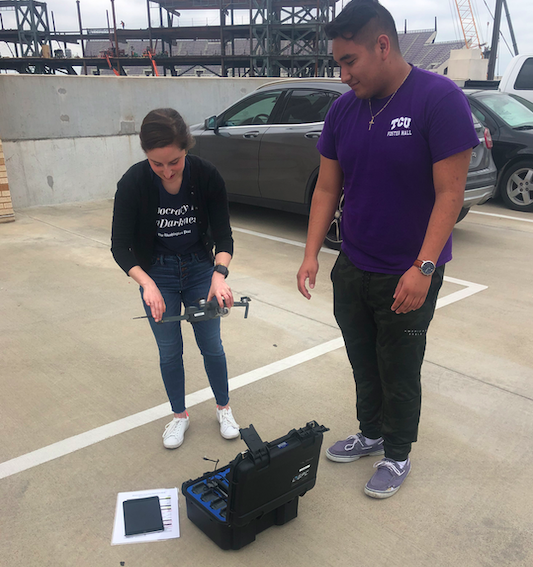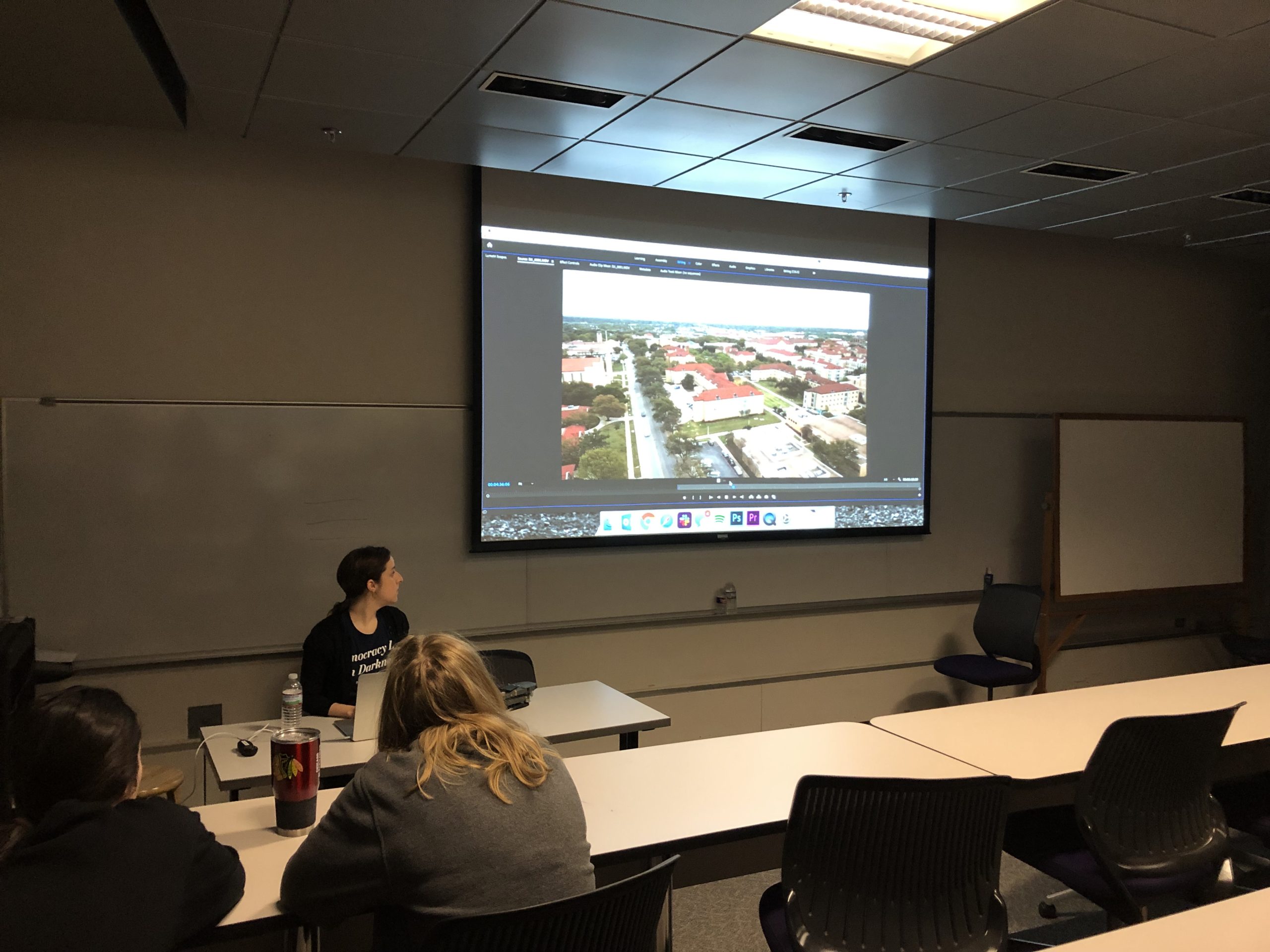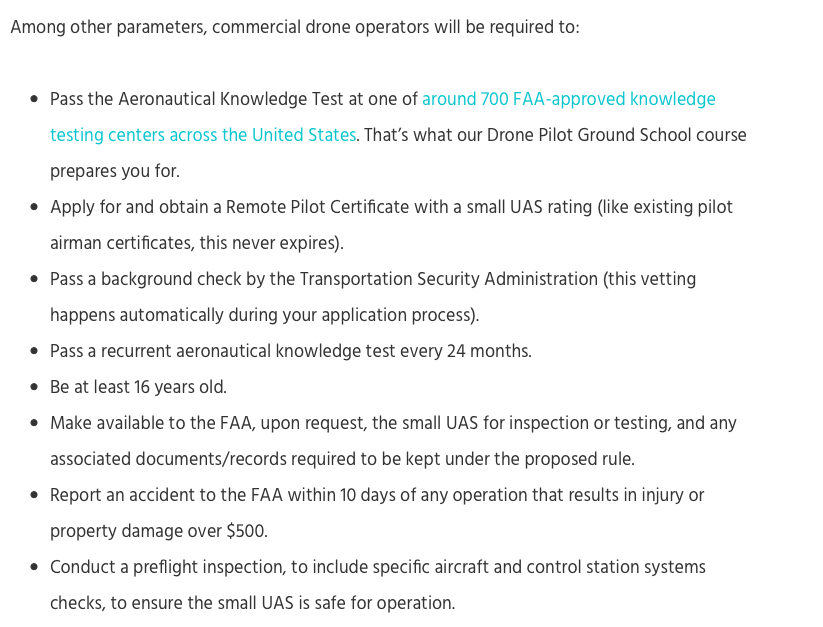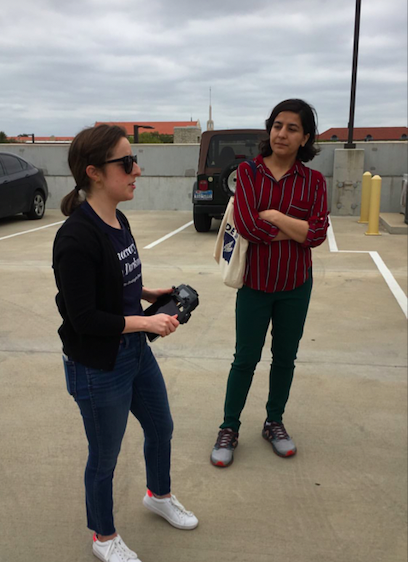
PHOTO: Samantha Suttle – Bob Schieffer College of Communication
The journalism industry has gone through a drastic transition over the last decade and TCU journalism students got the chance to experience one of the newest methods of storytelling first-hand.
Drone journalism has been used by investigative journalists and professional storytellers to cover stories
VIDEO: Samantha Suttle – Bob Schieffer College of Communication
Jayne Orenstein has spent her nine-year journalism career with the Washington Post after graduating from George Washington University. She oversees operations with the Post’s drone program and is in charge of all 12 licensed drone pilots on staff.
“Drones are certainly a benefit to journalists who want to tell a story with unique visuals,” Orenstein said.
TCU journalism professor Shugofa Dastgeer had several of her students in attendance and was responsible for coordinating the workshop.
“I want these students to learn how important it is to be technologically savvy in the field of journalism,” Dastgeer said. “I talked to students prior to Friday’s workshop who have never heard of the term ‘drone journalism’ and I wanted to change that.”

PHOTO: Samantha Suttle – Bob Schieffer College of Communication
Orenstein started her workshop by taking the students to the top floor of the Frog Alley Parking Garage. The drone expert explained the ins-and-outs of drone flying and eventually began capturing footage across campus.
Students were not able to fly the drone due to licensing reasons.
To conclude Orenstein’s session, the group headed to the Moudy South building to watch Orenstein’s editing process using the Adobe Premiere editing software.

PHOTO: Trent Attyah – TCU360
Journalism major Teresa Alvarado was one of the attendees at the workshop.
“I had no drone knowledge prior to the workshop, but I always thought drones were super interesting, especially when I’m watching a movie and wonder ‘how did they get that shot?’” Alvarado said. “I had no idea that there were so many rules and regulations in order to fly a drone.”
On June 21, 2016, the FAA enacted regulations against drone users, requiring a pilot license in order to operate. According to Drone Pilot Ground School, “…these new regulations effectively create a new drone certification process that covers the majority of low-risk, commercial sUAS flight operations.”
In order to become a licensed drone pilot in the U.S., you must be over the age of 16, speak proficient English and be in a physical and mental condition to safely operate a drone, according to Quartz.com. Drone operators must also complete the required in-person Aeronautical Knowledge Test, which costs $150 to take.

PHOTO: DronePilotGroundSchool.com
TCU is planning on adding a “drone journalism” course to its curriculum in
“We hope to purchase several drones for students interested in enrolling in the course next spring,” Dastgeer said. “Students in the course will prepare for the Aeronautical Knowledge Test and become proficient in drone flying and editing footage.”

PHOTO: Samantha Suttle – Bob Schieffer College of Communication
Orenstein weighed in on the future of drones in journalism and how drones are currently going through a period of transition.
“Hopefully it will get easier to fly drones because right now the restrictions on where and when you can fly serve as everyday concerns for drone journalists,” Orenstein said.
Click here to check out Jayne Orenstein’s most recent work with the Washington Post. Head to her personal website to find all her video production work, along with recent drone footage and documentary productions.



